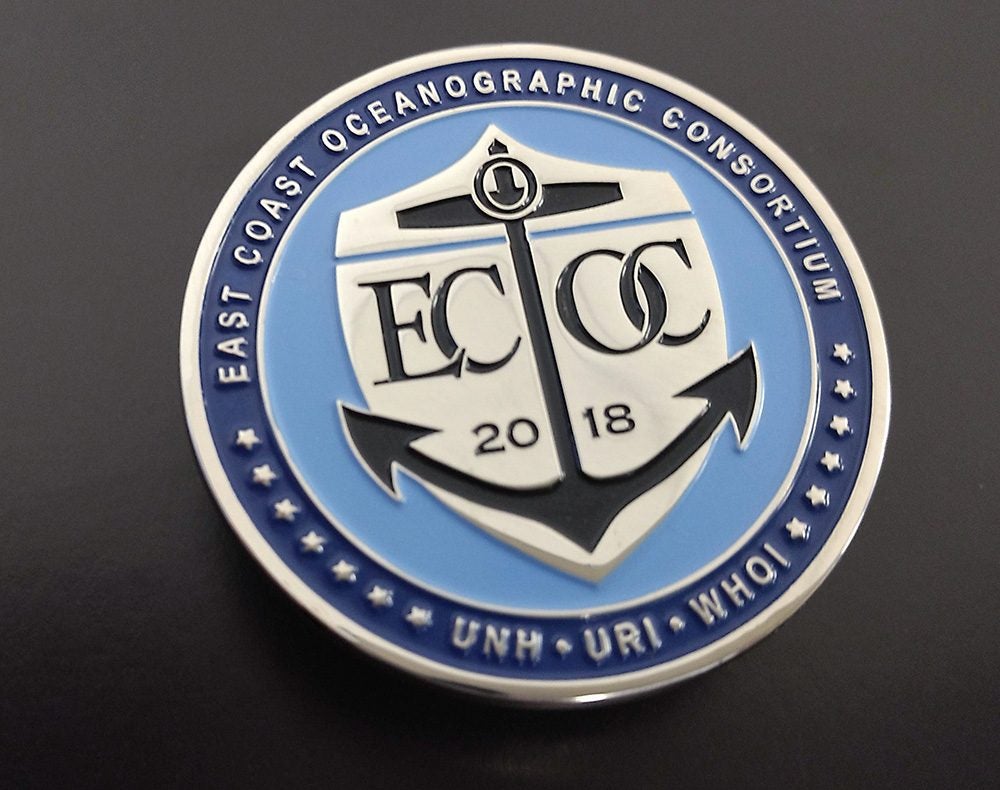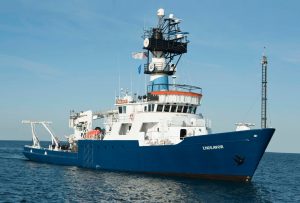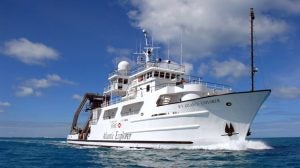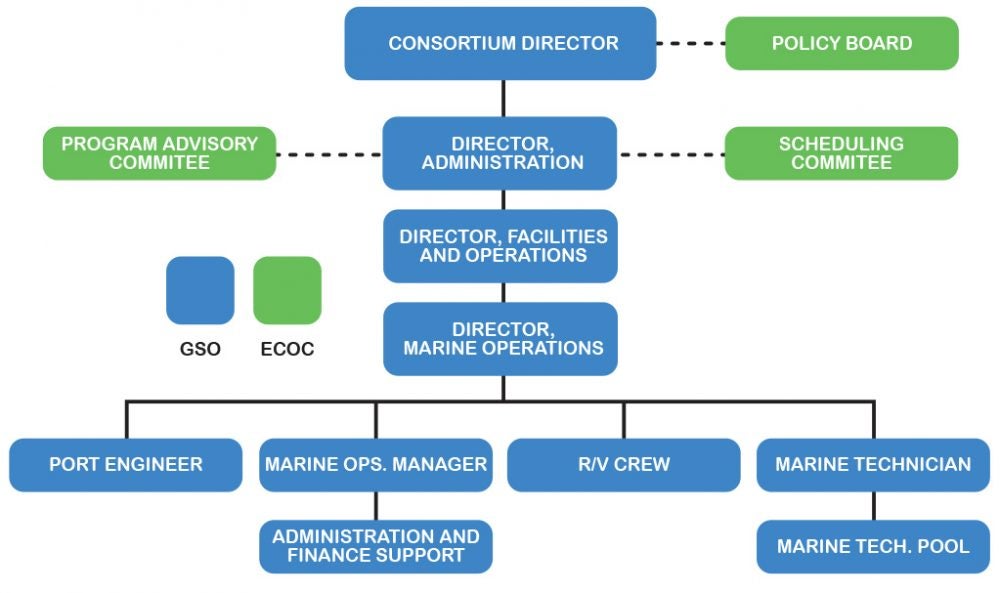 Formally created in January 2018 with the signing of a partnership, the East Coast Oceanographic Consortium is the culmination of five years of discussion with marine science institutions along the Eastern seaboard and builds on GSO’s reputation as one of the world’s premier academic institutions of oceanography and ocean exploration.
Formally created in January 2018 with the signing of a partnership, the East Coast Oceanographic Consortium is the culmination of five years of discussion with marine science institutions along the Eastern seaboard and builds on GSO’s reputation as one of the world’s premier academic institutions of oceanography and ocean exploration.
The objective of the consortium is to enhance and promote research and education among its members

Scientists in the ECOC have a long history of sea-going research and exploration. GSO’s success and reputation in the ocean science community is largely the result of its successful management and operation of R/Vs Trident and Endeavor; support for operations of the NOAA Ship Okeanos Explorer and E/V Nautilus; and the subsequent sharing of research results and experiences around the globe.
ECOC Members (Marine Operations, Science, Education and Outreach)
- URI Graduate School of Oceanography
- University of New Hampshire
- Woods Hole Oceanographic Institution

ECOC Associate Members (Science, Education, and Outreach Collaborators)
- Bermuda Institute of Ocean Sciences
- Bigelow Laboratory for Ocean Sciences
- Brown University
- Florida Institute of Oceanography
- Harvard University
- Lamont-Doherty Earth Observatory, Columbia University
- Ocean Exploration Trust
- University of Maine
- University of Massachusetts Boston
- University of Massachusetts Dartmouth
- University of Miami
- University of Puerto Rico-Mayagüez
- University of South Florida
- University of Southampton
ECOC Director and Support Team

As the ECOC Director, the GSO Dean provides the overarching vision and direction for the ECOC and directs the OI support team in the execution of the ECOC agreement and ship operations. The responsibilities of the support team include:
GSO Director, Administration
This position provides oversight and direction for ECOC administration and operations to facilitate efficient management of ship-based research support.
GSO Director, Facilities and Operations
This position is responsible for management and planning of ship operations, including marine buildings and infrastructure. This position oversees the finance and administration for research vessel operations, is a member of the Scheduling and Program Advisory Committees, and is an ex-officio member of the Policy Board.
GSO Director, Marine Operations
This position is responsible for the overall operation and management of the research vessel, the Marine Office, the master and crew, and the Marine Technicians. This position acts as the liaison between the scientific parties, marine technicians, research vessel, Marine Office personnel, and funding agencies with regard to shipboard scientific operations and equipment, chairs the ECOC Scheduling Committee and serves as an ex-officio member of the ECOC Program Advisory Committee.
Additional integral elements of the ECOC structure, designed to advise, counsel, and provide ideas at the executive and operational levels, include the Policy Board, Program Advisory Committee and the Scheduling Committee. The role of each is described below.
ECOC Policy Board
The ECOC Policy Board has overall responsibility for ensuring that the Consortium serves the interests of the lead and member institutions as well as the broader ocean science research community and ship users. The board consists of two members from each institution and ex-officio members (ECOC Director, Chair of the Program Advisory Committee, Chair of the Scheduling Committee, and GSO Director, Facilities and Operations) and advises the GSO Dean who has overall responsibility for the ECOC and ship operations.
ECOC Program Advisory Committee (PAC)
The PAC provides advice on program development including but not limited to: science, technology, equipment, and instrumentation information. The committee comprises two members from each member institution, with at least one representative from each major oceanographic discipline (biology, physics, geology, chemistry, and atmospheric science).
Associate Members will be engaged as appropriate to provide input on ship outfitting. Specifically, the PAC provides the following:
- Reviews equipment and instrumentation needs and recommends items to be included in annual NSF equipment and instrumentation proposals;
- Explores opportunities to promote cooperation and interaction of marine scientists from across the UNOLS community as well as the Full Member and Associate Member institutions; and
- Develops and implements a one to five year broader impacts strategy for supporting ocean research and education activities for the RCRV.
